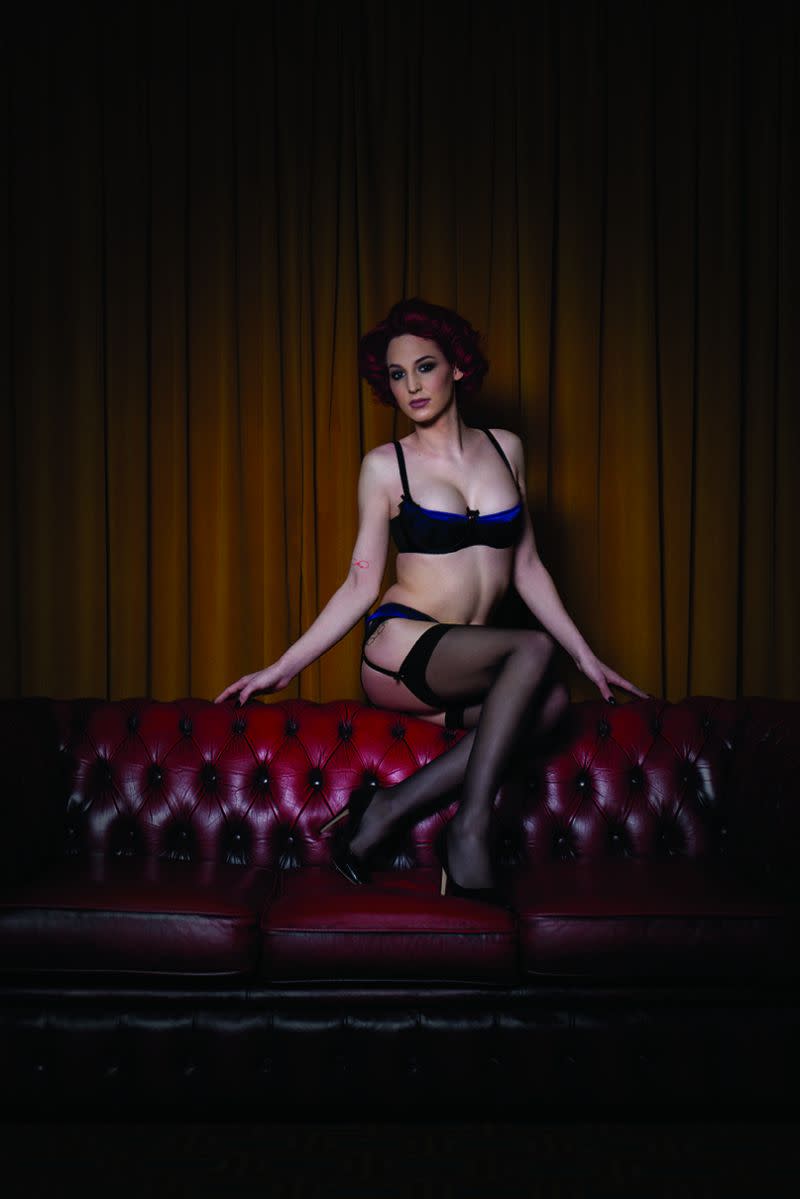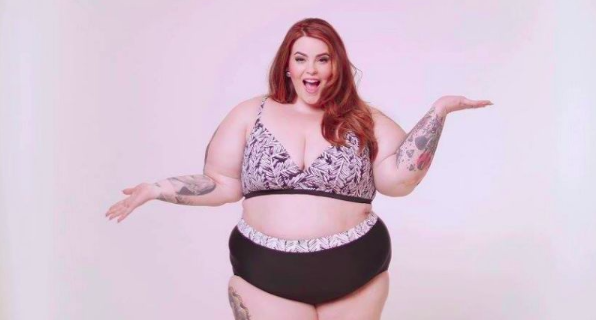Facebook Rejects New Diverse Lingerie Campaign For Being Too Sexy

Just when you think we’re beginning to make grounds in breaking down one-body-fits-all beauty boundaries, a diverse lingerie ad, which we told you about earlier this month, is rejected by Facebook.
The new ad, part of CurvyKate’s new Scantilly campaign aims to give a much needed hit of diversity in the lingerie industry by shunning professional models and instead enlisting eight powerful female role models including a transgender woman, an amputee, an alopecia sufferer, a plus size blogger and a recovered anorexic.
Facebook don’t seem to agree with the message behind the ad, and when a group shot from the campaign was added to the social media site, it was quickly removed for breaching its advertising policies.

Since then two more shots from the campaign including one of transgender model, Effie, have also been removed.
Though Facebook hasn’t commented specifically about the reasons the ads were removed, the standard message it posted by way of an explanation said: “We don’t allow ads that promote sexual acts, sexual videos and publications, strip clubs or adult shows. Ads like these are sensitive in nature and typically evoke a negative reaction from viewers.”
But though the shots are undoubtedly sexy (as you’d expect for a campaign called #TheNewSexy), there’s certainly no nudity, and it seems the only difference here is the models. The content isn’t any racier than what you see on the Victoria’s Secret and Frederick’s of Hollywood Facebook pages.

Speaking exclusively to Yahoo about the ad removal, Hannah Isichei, CurvyKate’s Head of PR and Marketing, said she believes taking down the images sends the wrong message about diversity.
“At first I thought there must be some mistake when Facebook cancelled our ads,” she says. “Although Scantilly does offer more risqué pieces (and why not?) all images shown on our social pages would be classed as standard lingerie shots. No nipple, no bum shots – just gorgeous women in lingerie, being proud of who they are,” she explained.
“Across Facebook you can see lingerie images, swimwear images and other smaller cupped ‘sexy’ lingerie brands seem to be able to advertise – but the Scantilly images did not pass Facebook’s rules and regulations as they are thought to ‘provoke negative comments’ and advertise sexual activity. We were baffled, as were our fans. Everyone who is active on Facebook has seen pages that should be banned, such as those featuring violence, racism or sexism but yet eight women spreading a powerful message has been deemed as ‘negative’.”
Hannah believes the ad removals go against the positive strides we have been making towards a more diverse fashion industry.
“In recent years there have been some changes in the media, with the use of different models in the industry. We’re slowly seeing more plus size women, women of colour etc but we still have a long way to go. We need Facebook to support this drive for diversity not create another barrier, stopping these images being filtered down to the public. As such a powerful resource of information, socializing and news – Facebook should be encouraging a message of positive body image so that their wide and diverse range of followers may start seeing someone they relate to.”

Megan Crabbe, a recovering anorexic who appeared as one of the campaign models, believes there’s a diversity bias when it comes to advertising on social media.
“This isn’t the first time bodies that don’t fit the cultural idea of acceptable or beautiful have been censored, while those who do get to post the same content freely,” she explains.
“The people who have power over what we’re allowed to see shouldn’t be letting their own prejudice dictate who the ‘rules’ apply to and who they don’t. Perhaps instead of banning a campaign promoting body positivity, self love and acceptance of all bodies, their time would be better spent targeting the violence, racial hatred, pornography and pro-eating disorder content that still runs rampant online. A group of diverse women celebrating their bodies and encouraging others do the same isn’t dangerous or inappropriate, but the censorship of it is both.”

This isn’t the first time Facebook has been accused of rejecting a body-positive advert. Back in May the social media giant was forced to apologize after removing an advert for a feminist group Cherchez la Femme starring Tess Holliday. The advert, to promote an event called ‘Feminism and Fat’, featured a picture of the model in a bikini but was banned by the social media site because it “depicts a body or body parts in an undesirable manner”.
Facebook eventually reversed the decision to ban the ad and issued an apology for not initially approving the image.
Though CurvyKate have appealed the decision to remove the ads, they have yet to receive a response from the social media site.
Follow us on Instagram, Facebook, and Pinterest for nonstop inspiration delivered fresh to your feed, every day.

